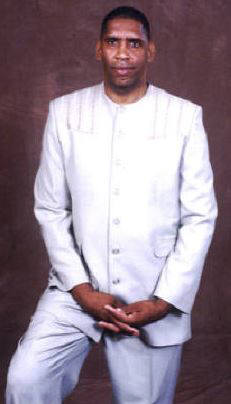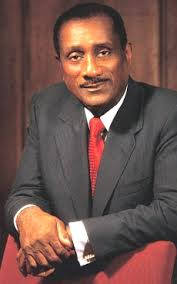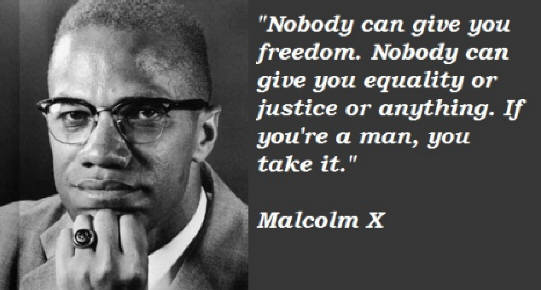What about just learning from the Proud Black Buddhist Organization?

Let me let you in on a little secret. I have been a Buddhist for 40 years and my "Gongyo" (reciting the Lotus Sutra) is not the best. I have been to many Buddhist meetings over the years and many people can "recite a better Gongyo than me." I marvel at those who have the perfect "Gongyo." I mention this fact because I am setting out to head an "International Buddhist" organization and my ability to lead "Prayer Service" is mediocre or even poor. I have no desire to lead prayers and I certainly do not desire to be a Buddhist Priest. When it comes to the Japanese Buddhist traditions I never got into the traditions and I am the worst guy in the world to teach you "Japanese Traditions." If you want an expert in "Japanese Buddhist Traditions" you are better off at finding you a "Japanese to teach you. In my life I have many examples of teachers whom I follow. This will tell you how we plan to organize teachings and learning in the Proud Black Buddhist World Association.

One of my Heroes in life is John H. Johnson
John H. Johnson was the grandson of slaves. He was born in Arkansas in January of 1918. When I think of my life and the crossroads that I face in trying to organize African Americans to see the value in the Buddhism Faith I think of Mr. John Harold Johnson. Mr. Johnson came to Chicago a poor man. Students teased him in School. One man gave Mr. Johnson a chance by offering him a job. Mr. Johnson had the idea of creating a magazine that showed African Americans in a positive light . One White man told Mr. Johnson that if people wanted "Positive Stories About Black People someone would have created such a magazine. No one believed in Mr. Johnson but his mother who used her furniture as collateral so the could borrow $500.00 in 1942 to create his first magazine called the "Negro Digest." The Negro Digest later became Jet Magazine and later there came a magazine for Black People. John H. Johnson became one of the most important figures in African American History. Jet and Ebony magazine lead the struggle in Black Liberation. Anthony "Amp" Elmore is the John H. Johnson of Buddhism Elmore notes that it is time in the World for African and African American Buddhist to enter the World Stage.
The Japanese teachers of Buddhism do not just teach Buddhism they include in their teaching Japanese "CULTURE, HISTORY, & TRADITIONS." We believe in following the pathway of the Japanese by including in our Buddhist Practice our African and African American "Culture, History and Traditions." We believe that we should also respect our ancestors as Japanese respect their Ancestors. We hold that it infair in the Buddhist religion to put one history over another.
Those who seek to understand what it means to learn Buddhism from the Proud Black Buddhist World Association while our knowledge of shallow our spirit to teach Buddhism in the context of the culture and history of African and African and African American history is vast. We got the spirit of our website and the challenge to take on Japanese Ethnocentrism 30 years ago when we were introduced to the Black Buddha by Black Revolutionary Hero Malcolm X. We hold that the "Spirit of Malcolm X guided us." Please click on the above picture and read our story. Many have accused of having "Shallow Buddhist Knowledge." We admit that our knowlege is Shallow but our "Buddhist Spirit is Vast." We called upon the "Spirit of our Ancestors." Malcolm X heard our please and he gave Anthony "Amp" Elmore the courage to walk away from the SGI Buddhist organization in March of 1991. Elmore re-kindled his spirit after being rejected by both Japanese Nichiren Buddhist organizations Nichiren Shoshu and Nichiren Shu. Elmore made the decision to organize the "Proud Black Buddhist World Association." We are not ashamed to say that we are guided by the "Spirit of Malcolm X." Please note that Nichiren Daishonin wrote that the Buddha Shakymuni said: "The true path lies in the affairs of this world. The
Golden Light Sutra
states, “To have a profound knowledge of this world is itself Buddhism.” The
Nirvana Sutra
states, “All of the non-Buddhist scriptures and writings in society are themselves Buddhist teachings, not non-Buddhist teachings.”
Further it is written: When the
Great Teacher
Miao-lo
compared these passages with the one from the sixth volume of the
Lotus Sutra
that reads, “No worldly affairs of life or work are ever contrary to the true reality,” he revealed their meaning and pointed out that although the first two sutras are profound, since their meaning is still shallow and fails to approach that of the
Lotus Sutra
, they relate secular matters in terms of Buddhism, whereas the
Lotus Sutra
explains that in the end secular matters are the entirety of Buddhism.
Please note that the "LOTUS SUTRA" explains that in the end secular matters are the entirety of Buddhism. We approach Buddhism from the approach of secular matters.
Click on the above picture of Malcolm X he inspired us to start this website almost 16 years ago
